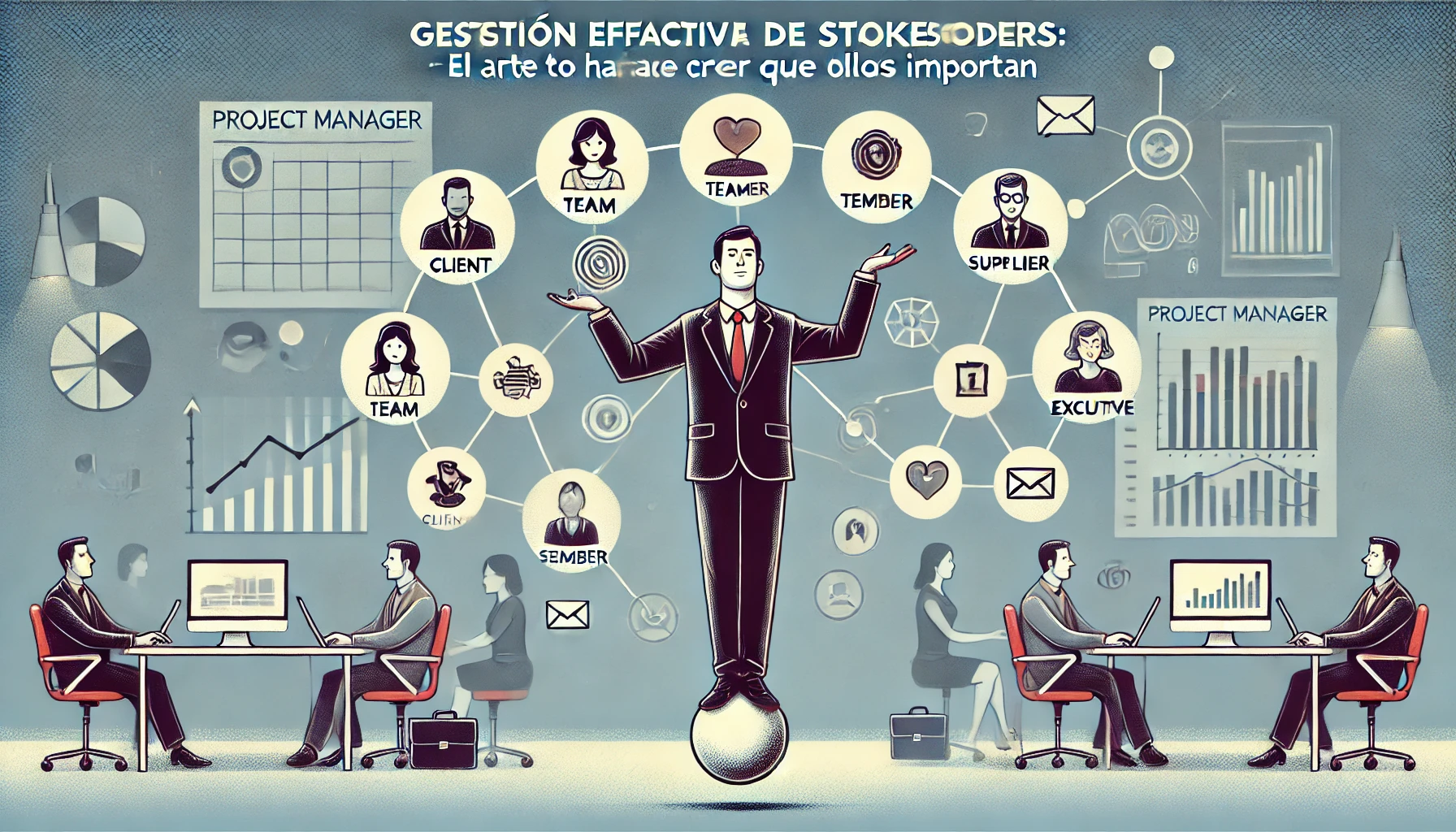
What is leadership?
We hear a lot about being better leaders, leading teams.
Leadership occurs at all levels of the organization, whether it is a technical leader, functional leader or hierarchical leader.
but what does leadership really mean?
I like to define leadership as:
Leadership is the ability to inspire your team to reach a shared goal.
And there are two very important elements in that phrase inspire and then shared goal.
Inspiring has to do with communication, with modeling. And it is a shared objective when you explain the “Why”, not when you impose an objective and for this we have to learn to explain the why of some objectives, to inspire through that higher purpose and that our team become bearers of the purpose of the team, department or company.
Then we have Shared Objective. What we are pursuing should be something we all want to achieve, so it helps to use the OKR framework.
In this article we are going to share with you 2 qualities (persuasion and passion) and a key skill (active listening).
If you want to improve as a leader, focus on improving the skills I share with you and you will see changes from the first minute.
What are the qualities that a leader should work on?
There are two fundamental qualities that every leader should possess and work on:
- Persuasion
- Passion
Persuasion
The first quality to be able to exercise the role of leader well is persuasion.
Persuasion is not about tricking the other person into doing what you want.
Persuasion is the process of influencing the attitudes, beliefs or behaviors of individuals or groups through communication and other means, with the objective of reaching consensus or promoting change in line with organizational objectives.

For leaders, persuasion is a very important factor because you have to persuade your team to reach those objectives.
One tool that helps to improve persuasiveness is Storytelling. Storytelling is the art of telling a story in an engaging and captivating way. The objective is to convey a message, teaching, or simply to entertain, appealing to the empathy and emotions of the listener or reader of the story.
We have to take advantage of the fact that our brain is 100% programmed for this addiction to stories to use it in our communication.
Passion
What is the secret of the most successful TEDx talks?
PASSION

Passion cannot be feigned, passion must be 100% authentic.
To be successful in your career you have to believe in what you do or what you sell or what you are in. And also very important to put your strengths at the service of that, that is, that you are in a place that you are squeezing your strengths.
People who broadcast with passion are able to connect and mobilize their listeners. A team will follow a leader who conveys passion for what he or she does or the goals he or she pursues.
The key skill for every leader to possess
The most important skill for a leader is not persuasion, but one that may surprise you!
This skill is active listening.
In school, they teach us to write, they teach us to speak, but they don’t teach us to listen.
Active listening is a soft skill that is super important.

Active listening is having full attention when you are exchanging information without thinking about what the next question or answer is going to be.
If, like me, you study engineering where they teach us to look for solutions to problems… When someone tells you about a situation or challenge, your head is already thinking about the solution you are going to give them.
And this is the opposite of active listening!
Nor is it going to the opposite extreme, asking lots and lots of questions without listening and thinking about what the next question is going to be.
Active listening really means being 100% present without thinking about what you are going to say next.
Tips for developing active listening skills
There are very interesting tricks to develop mindfulness.
I’m a pretty hyperactive person (those who know me can attest), and so I’ve had to develop some mindfulness techniques.
For example, focus on the person’
The great challenge of active listening is that the thoughts are going to seem, you’re talking and it gives me time to think about what I’m going to eat today and quickly return to the conversation. And this is normal because we think much faster than we speak, which is why active listening is so difficult.
Another very interesting technique to develop active listening and to be present without thinking about the next question I am going to ask is to paraphrase.
Paraphrasing is very interesting because it shows that I am listening to you so much that I have managed to summarize what you have told me in my own words. in what sense, because I am
When they tell us, for example, a story and when they finish I tell him if I have understood correctly what happens to you is that you have had a problem “such and such” and for this reason it is like this.
That is paraphrasing and shows that I have listened to you so carefully that I have managed to interpret my own words.
Another technique combined with paraphrasing is to use the introduction “correct me if I am wrong” and repeat the last three or four words.
Another very simple and powerful technique, rather than paraphrasing, is nodding. Nod your head as you speak to us, showing that you are accompanying.
At all times there should be eye contact, and a little smile if possible. People with a lot of charisma stand out for their ability to be smiling a little bit at all times. This creates a brutal connection, because smiles are something Universal of the human being. A fine smile, so that we do not look like psychopaths or that we are laughing at our interlocutor.
Another tool that will help us to apply active listening is to ask open-ended questions. Questions whose answer is not “yes or no” but that generate a conversation. Asking an open-ended question makes me be very attentive because the answer may not be the expected one.
Switching from closed questions to open questions is a key exercise, as it will completely change the outcome as well as the perception of other people.
How to develop charisma
How would you like to be in a meeting and have everyone listen to you?
Of course!
Then the most important thing is body language!
Always an open language never let the shoulders drop, also a smile on the face.
A phrase by Andrés Montes always comes to mind:
Why do all gamers smile the same way?
These are small details, but they indicate that you are at ease and have nothing to hide. As human beings we are coded to interpret potential threats.
And we can see it as a threat in the other when their body language is closed.

We have to play in our favor that we still have our ancient caveman instincts in mind, which makes us think that there is something that is hiding a “closed” position.



